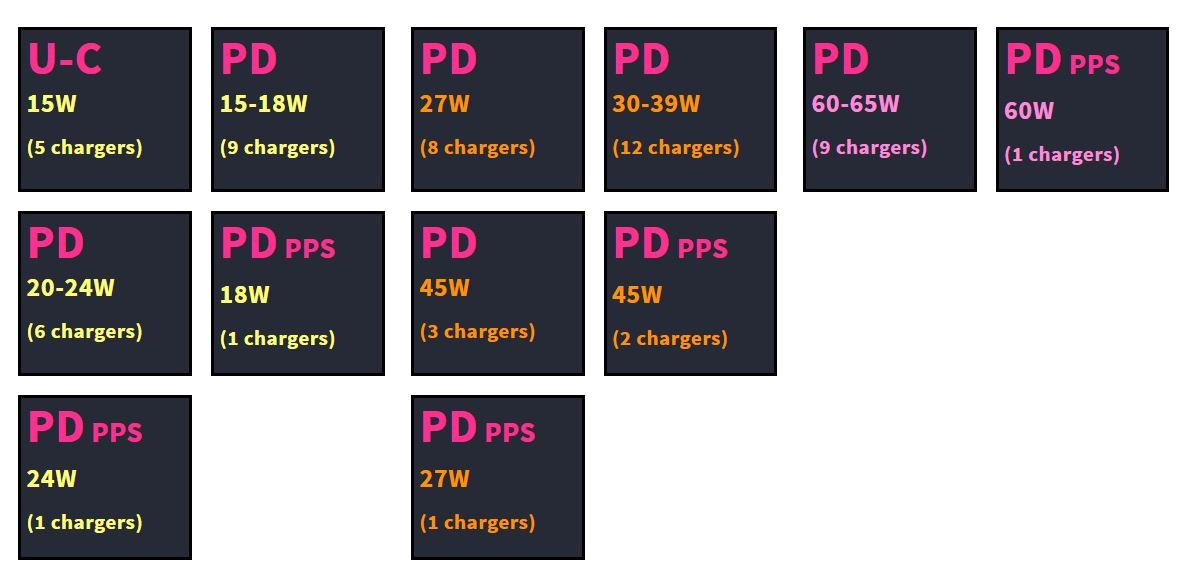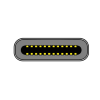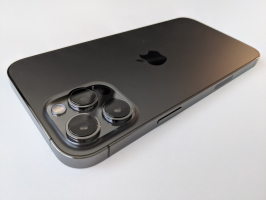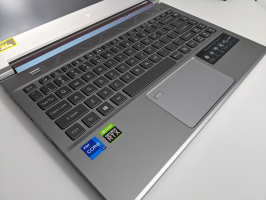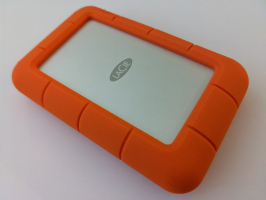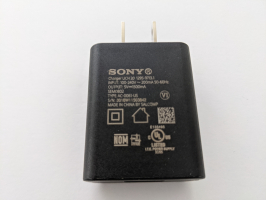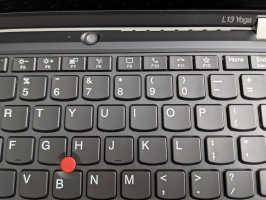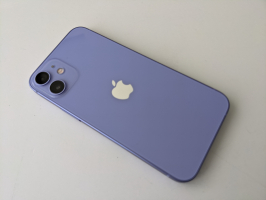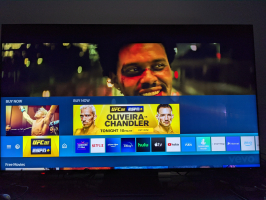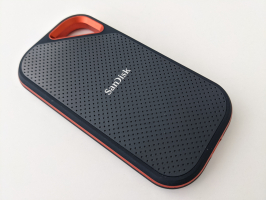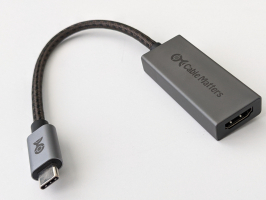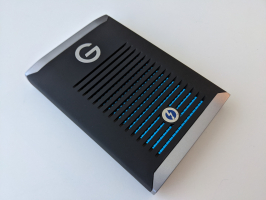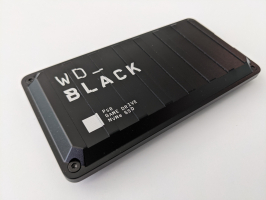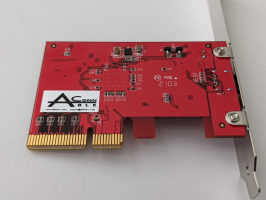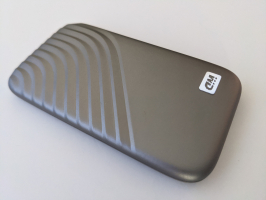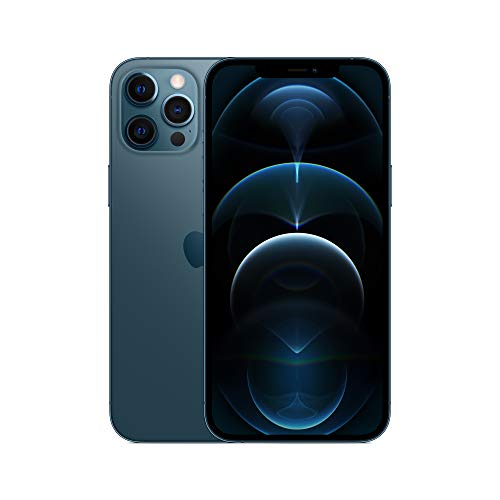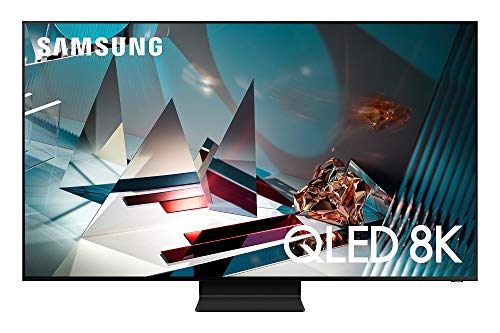5
High Trust ProductsCharging Technology Speed Performance Benchmarking
Chargers and Power Banks
Headphone & Speakers
Cases & Covers
Virtual Reality
Cables & Adapters
Media Player
Laptop
Tablet
Desktop
Cell Phone
Printers & Copiers
Memory Cards
TV
Computer Display
Game Console
Smart Home
Wearable Technology
Photo & Video Camera
Car Electronics
Car
Networking Equipment
Smart Toys
Home Audio & Video
Professional & Industrial
Storage Drive
Docking Station
Game Console Controllers
Set-top box
Keyboard, Mice, & Stylus
Portable Music Player
Computer Parts & Components
Cordless & Speakerphones
Projector
Software
Reporting
Verizon Vehicle Charger with Fast Charge Technology
by Verizon






Interested in this product?

Select a product category to see which devices type we recommend to use with the Verizon Vehicle Charger with Fast Charge Technology:


Verizon Vehicle Charger with Fast Charge Technology Supports Both USB Power Delivery and Qualcomm Quick Charge

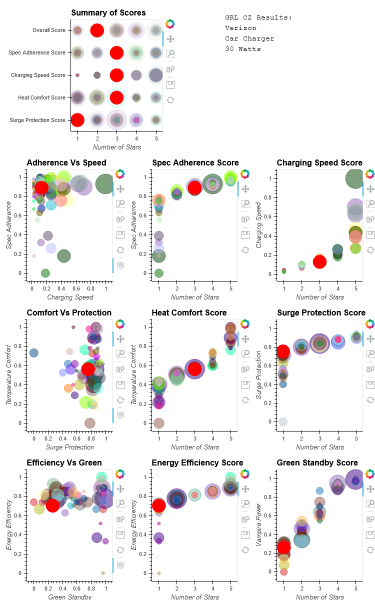
To date, most products supporting both USB Power Delivery and Qualcomm Quick Charge have been phones like the LG G5, LeEco Le Max 2, and HTC 10. Although alternative power charging negotiation schemes like Qualcomm Quick Charge over USB Type-C are not allowed by the USB specs, that hasn't stopped companies like Verizon to release the Vehicle Charger with Fast Charge Technology which is one of the first USB Type-C car chargers out there that supports USB Power Delivery and Qualcomm Quick Charge 3.0.
On the Qualcomm Quick Charge 3.0 side, the Verizon Vehicle Charger with Fast Charge Technology supports 15 watts (5 volts @ 3 amps), 27 watts (9 volts @ 3 amps), and 30 watts (12 volts @ 2.5 amps).
With USB Power Delivery, the Verizon Vehicle Charger with Fast Charge Technology supports 15 watts (5 volts @ 3 amps), 21 watts (7 volts @ 3 amps), 24 watts (8 volts @ 3 amps), 27 watts (9 volts @ 3 amps), 30 watts (12 volts @ 2.5 amps), and 30 watts (15 volts @ 2 amps).
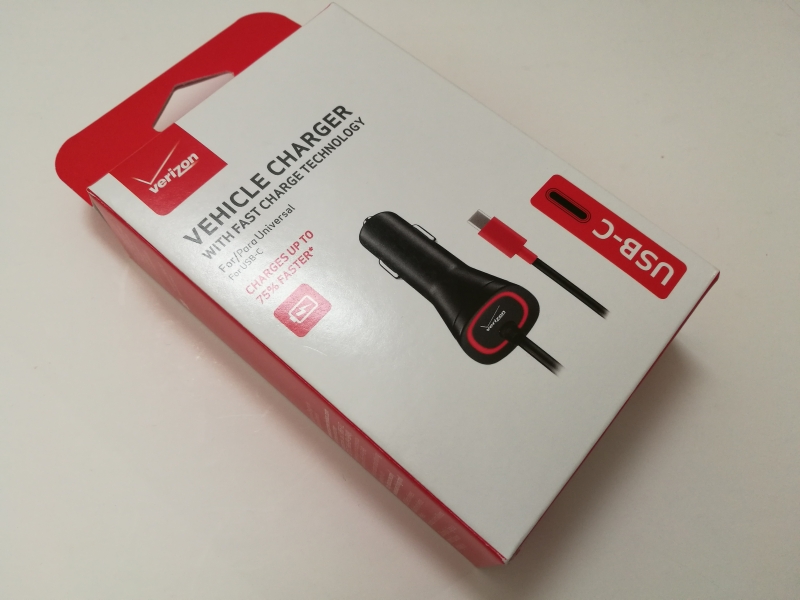
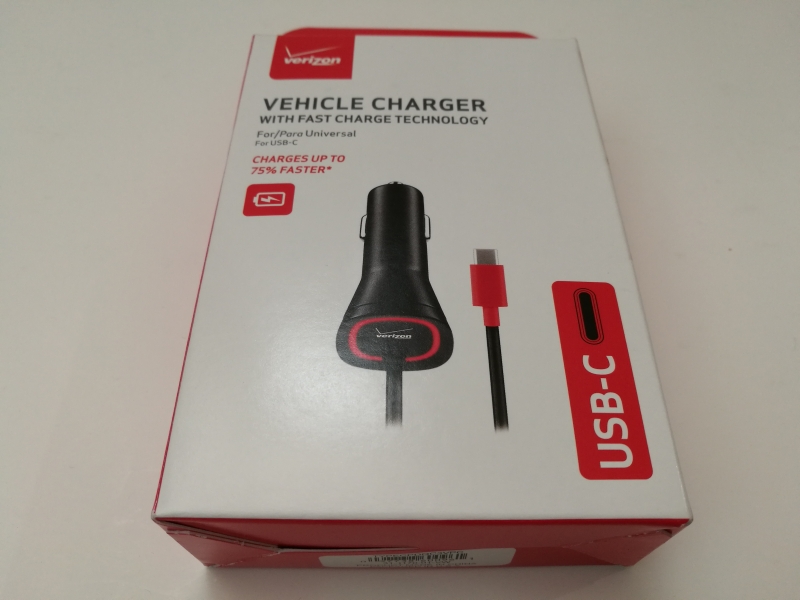
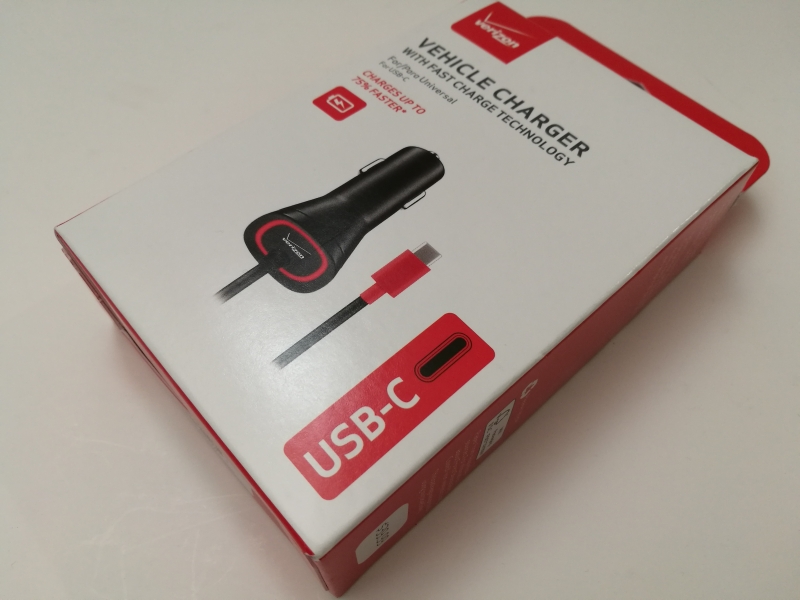
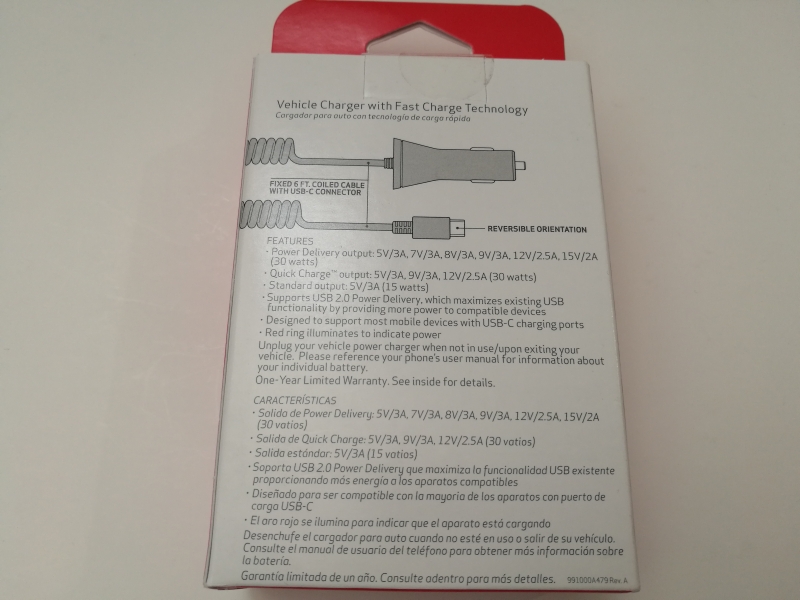
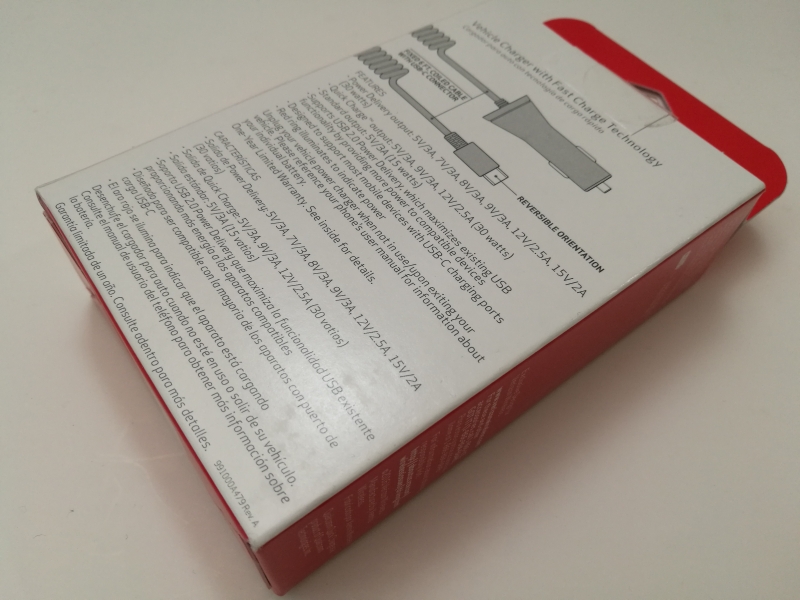
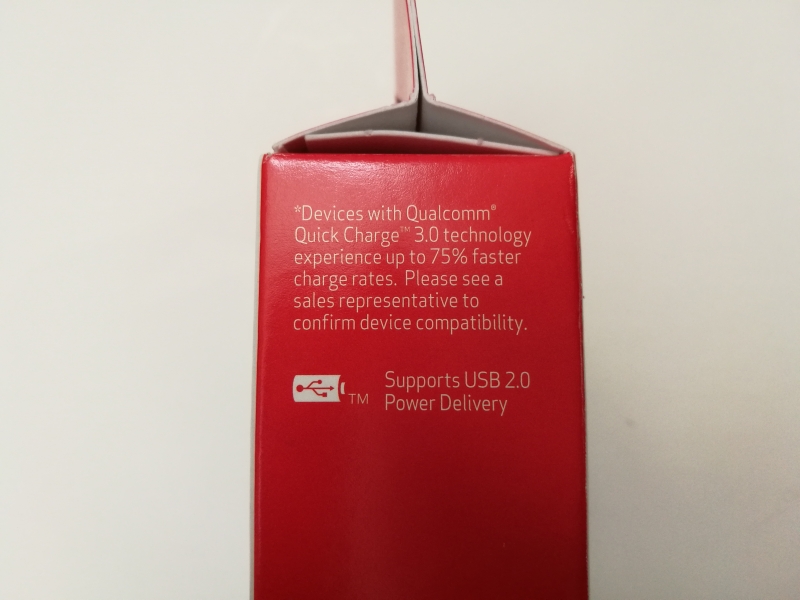
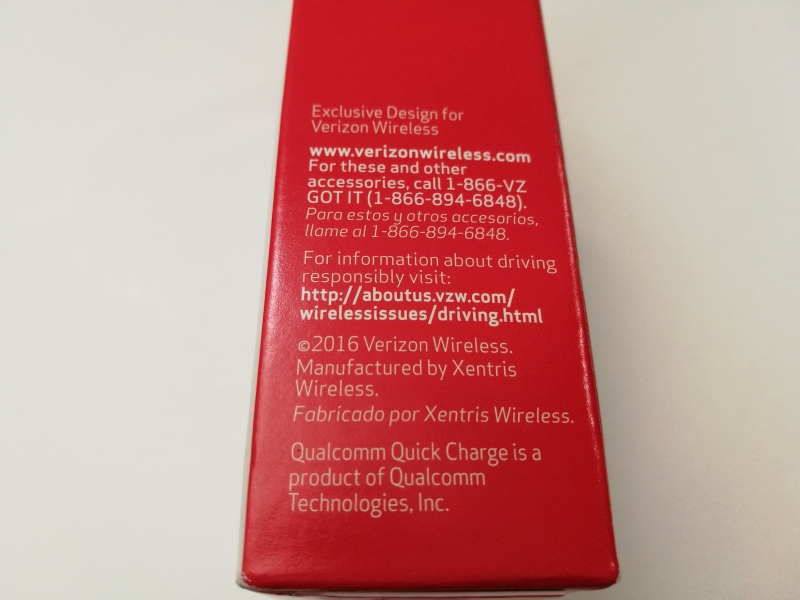
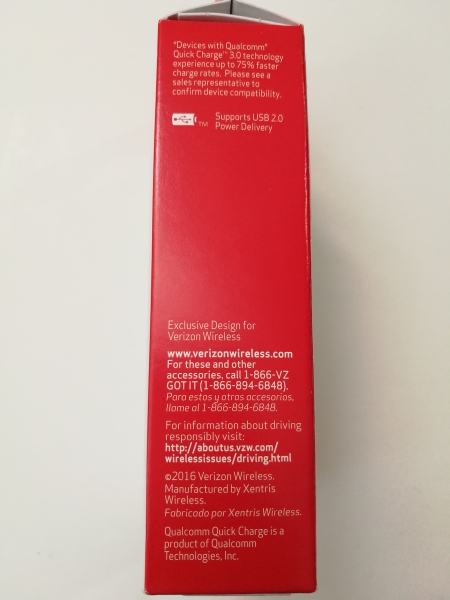
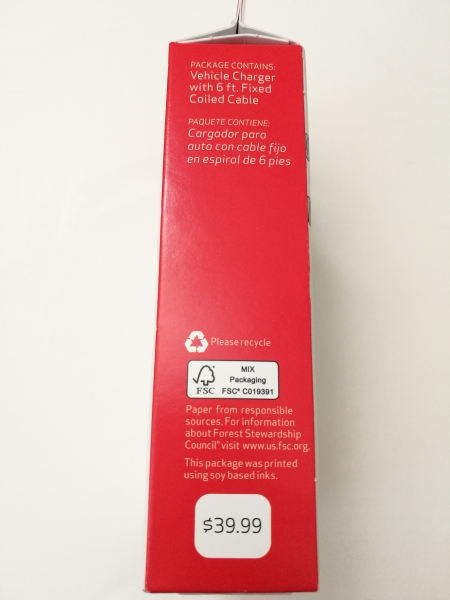
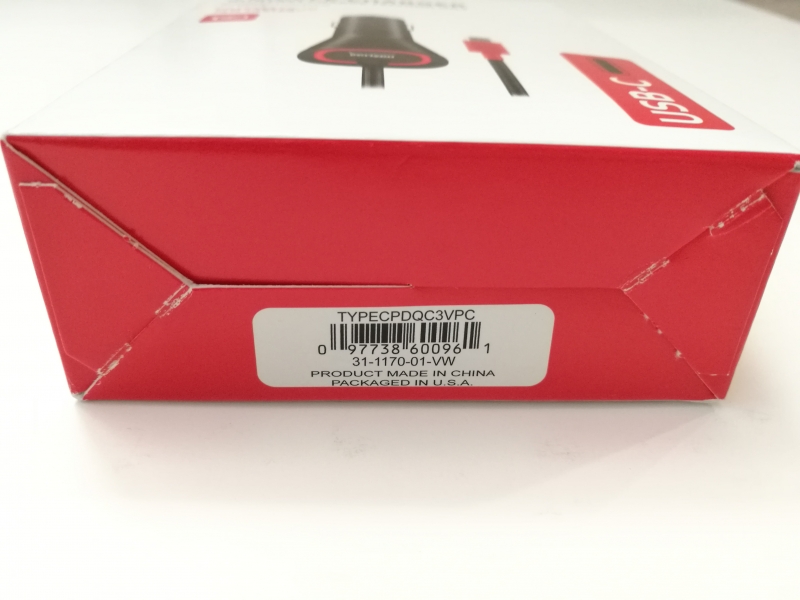
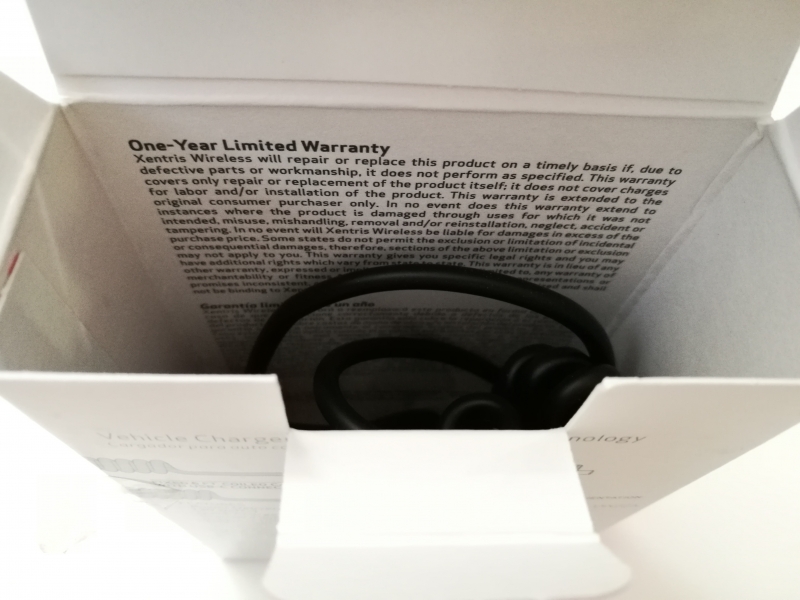
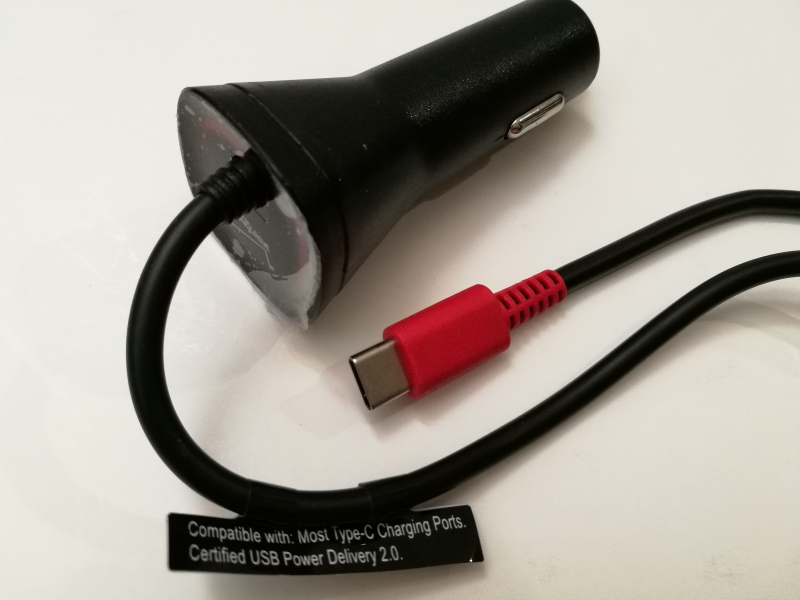
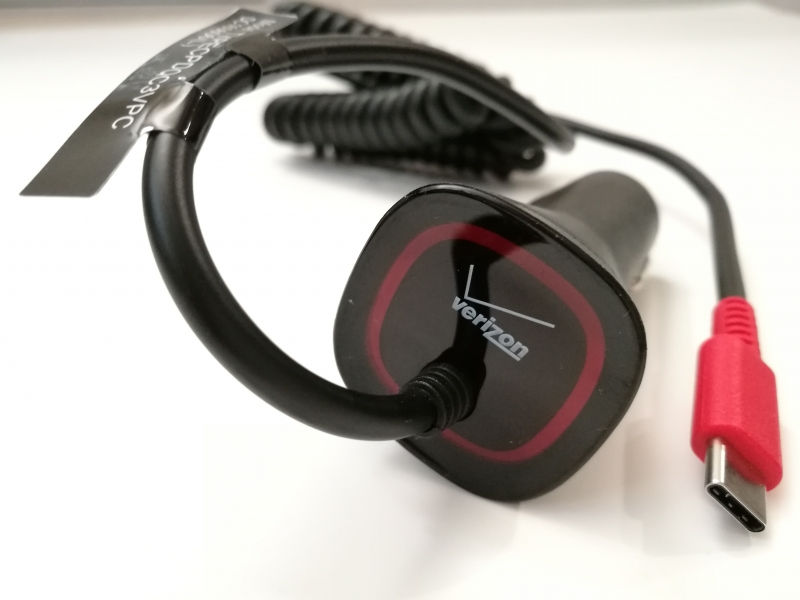
To see how power is supported by the Verizon Vehicle Charger with Fast Charge Technology, we used the USB Power Test App from Granite River Labs with the Granite River Labs USB Power Delivery Compliance C2 Tester to generate the following test results.
The USB Power Test App first negotiates a power contract for every PDO supported by the Verizon charger, and increases the load gradually to find the threshold where over current protection (OCP) kicks in and voltage and current start to drop for safety reasons.
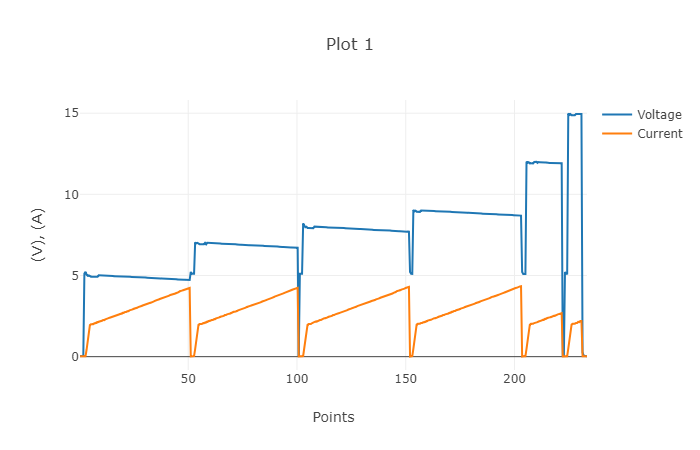
The USB Power Test App reports out all the PDO's supported by the Verizon charger and their OCP thresholds. We can see that for all PDO's except for the 12V and 15V PDO's, the OCP thresholds above the maximum current levels are very high which should only be around 10-20% for best practices.
| PDO | OCP (A) | %OCP |
|---|---|---|
| PDO#1 Fixed: 5V 3A | 4.23 | 141% |
| PDO#2 Fixed: 7V 3A | 4.24 | 141.3% |
| PDO#3 Fixed: 8V 3A | 4.27 | 142.3% |
| PDO#4 Fixed: 9V 3A | 4.34 | 144.7% |
| PDO#5 Fixed: 12V 2.5A | 2.68 | 107% |
| PDO#6 Fixed: 15V 2A | 2.19 | 109.3% |
The USB Power Test App from Granite River Labs also produces an I-V curve which graphically shows the relationship between voltage and current for each PDO. We can observe as the current increases beyond the OCP threshold, the voltage immediately shuts off.
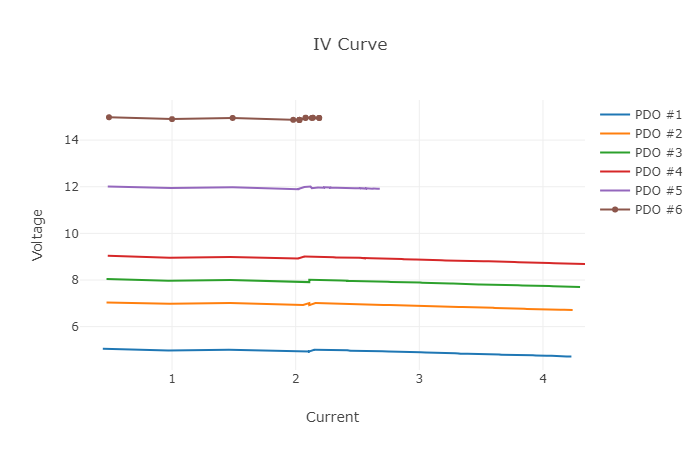
Using the USB Power Delivery Compliance C2 Tester from Granite River Labs to run just a subset of the full USB Power Delivery compliance test suite for the Verizon Vehicle Charger with Fast Charge Technology, compliance failures were mostly observed so just be careful when using this charger.
USB-IF High Level Mapping Summary
Sl No
|
Test Category
|
Test Group Description
|
Test Result
|
|---|---|---|---|
3
|
PHY_PRIMARY_MISC
|
BMC Physical Layer Miscellaneous
|
PASS
|
4
|
PROT_PRIMARY
|
Protocol Specific Primary
|
FAIL
|
5
|
POWER_PRIMARY
|
Power Source/Sink Primary
|
FAIL
|
Result Summary
Sl No
|
Test ID
|
Test Name
|
Test Result
|
|---|---|---|---|
5
|
TDA.2.1.3.1
|
TDA.2.1.3.1 BMC PHY TERM
|
PASS
|
7
|
TDA.2.2.1
|
TDA.2.2.1 BMC PROT SEQ GETCAPS
|
PASS
|
8
|
TDA.2.2.2.1
|
TDA.2.2.2.1 BMC PROT SEQ CHKCAP P PC
|
FAIL
|
9
|
TDA.2.2.2.2
|
TDA.2.2.2.2 BMC PROT SEQ CHKCAP NOMARK P PC
|
PASS
|
13
|
TDA.2.2.7
|
TDA.2.2.7 BMC PROT BIST NOT 5V SRC
|
FAIL
|
15
|
TDA.2.2.9
|
TDA.2.2.9 BMC PROT GSC REC
|
FAIL
|
16
|
TDA.2.3.1.1
|
TDA.2.3.1.1 POW SRC LOAD P PC
|
FAIL
|
17
|
TDA.2.3.2.1
|
TDA.2.3.2.1 POW SRC TRANS P PC
|
FAIL
|
View Full Article
USB PD Charging Technologies & Battery Life Benchmarking
Featured Products
 GTrusted
GTrusted


